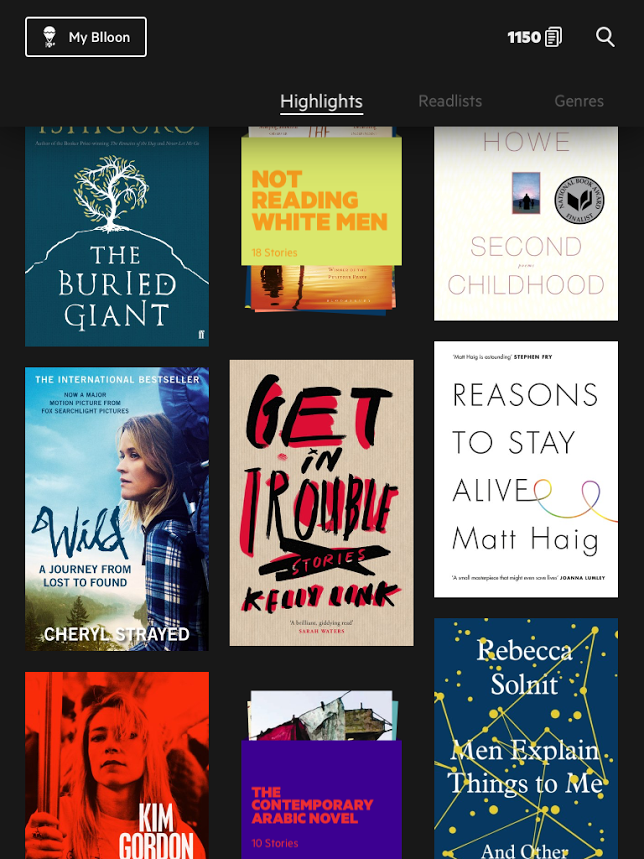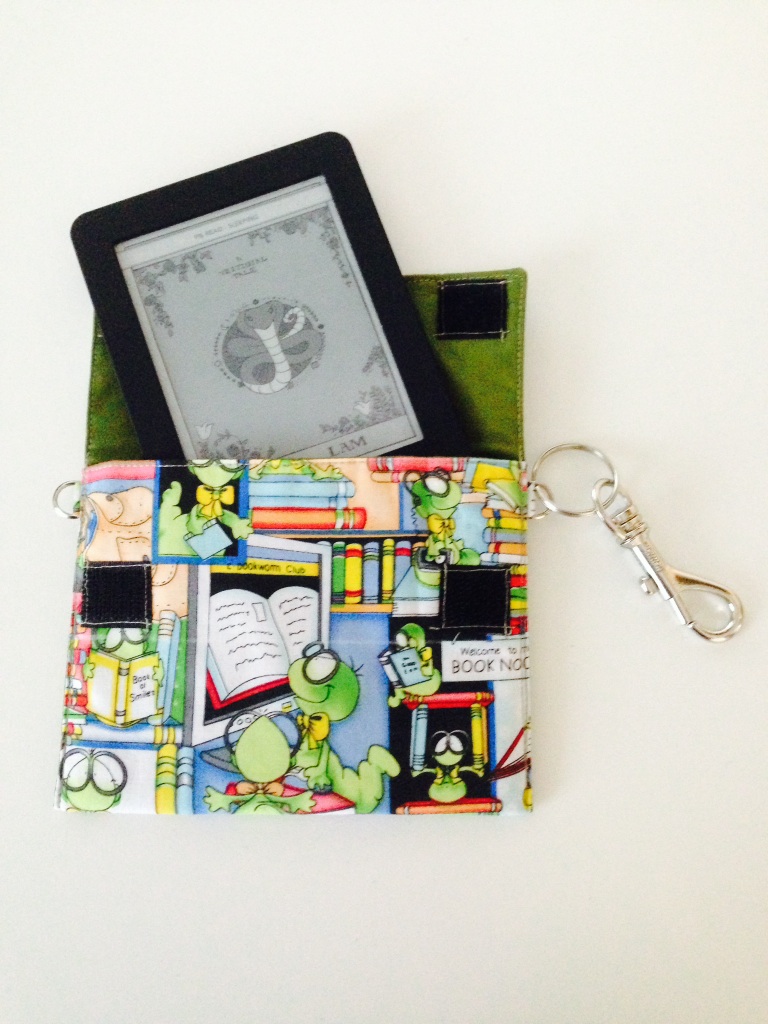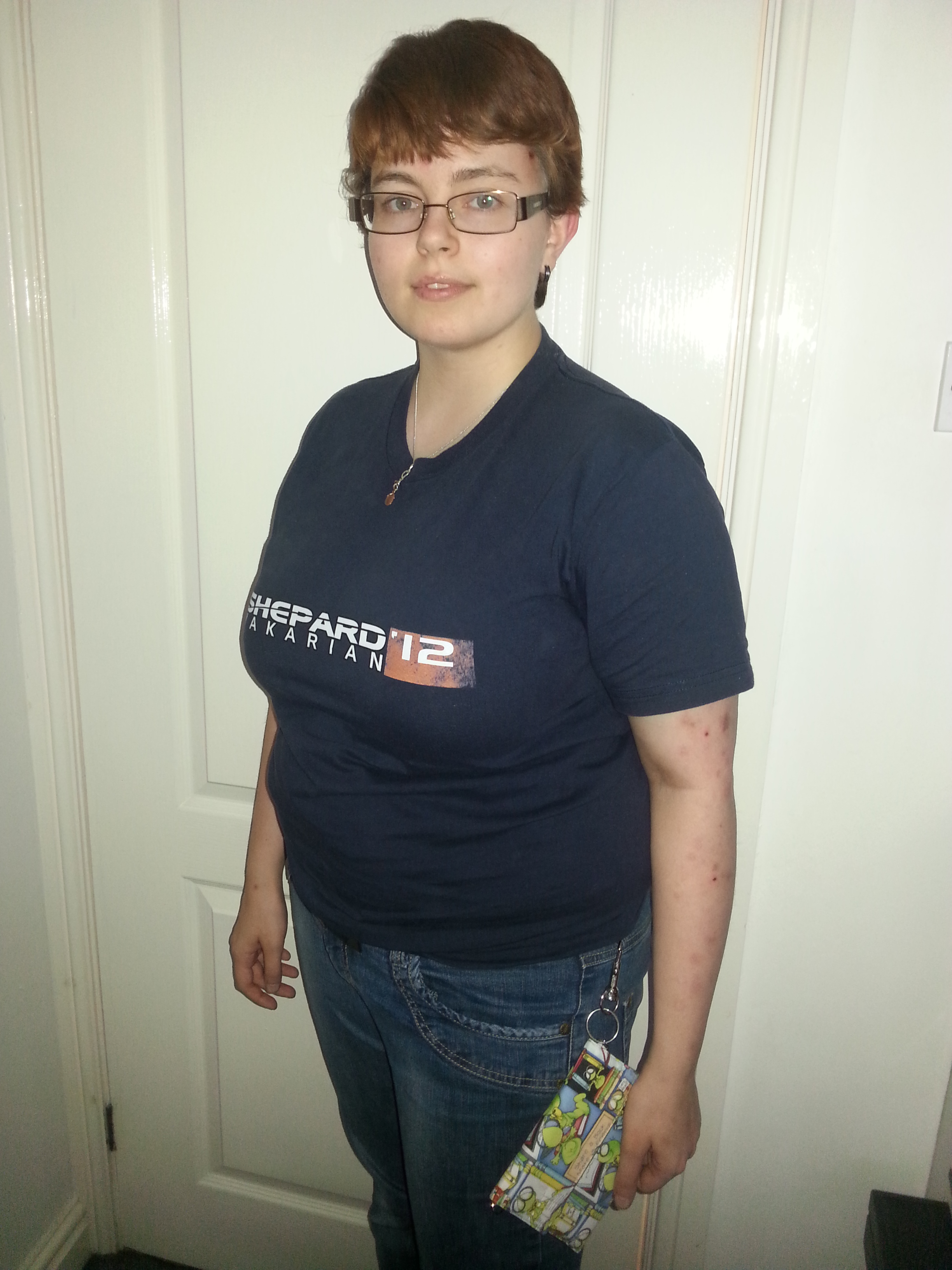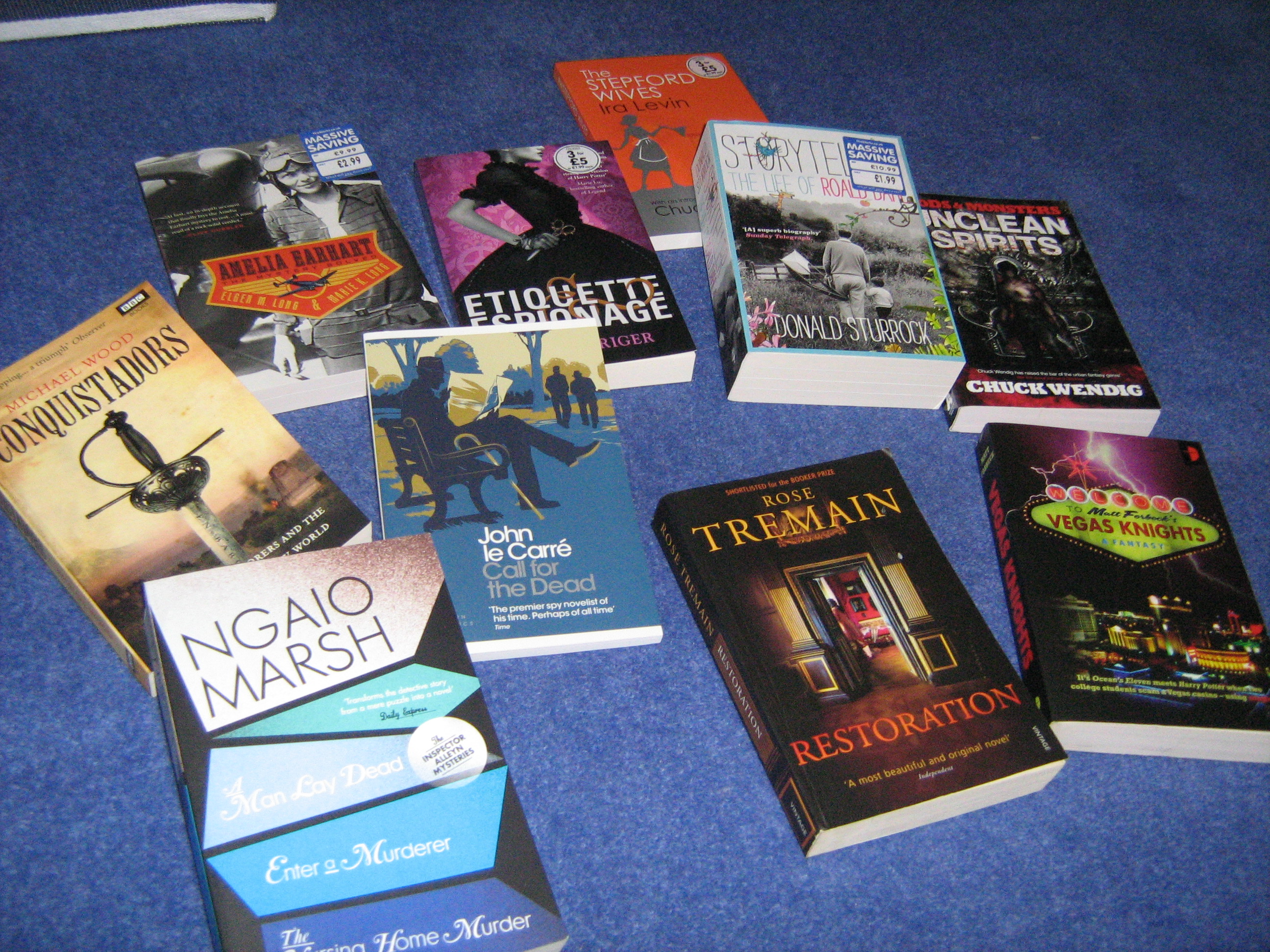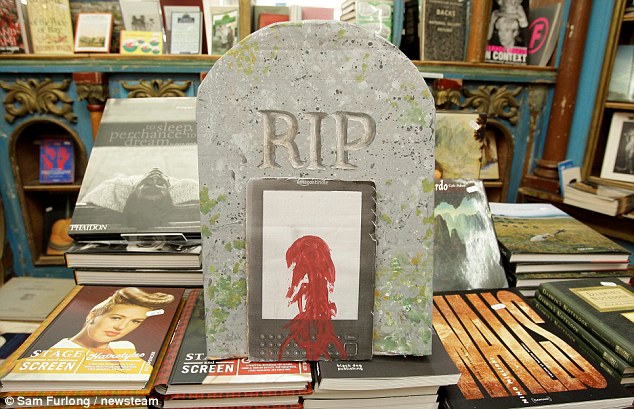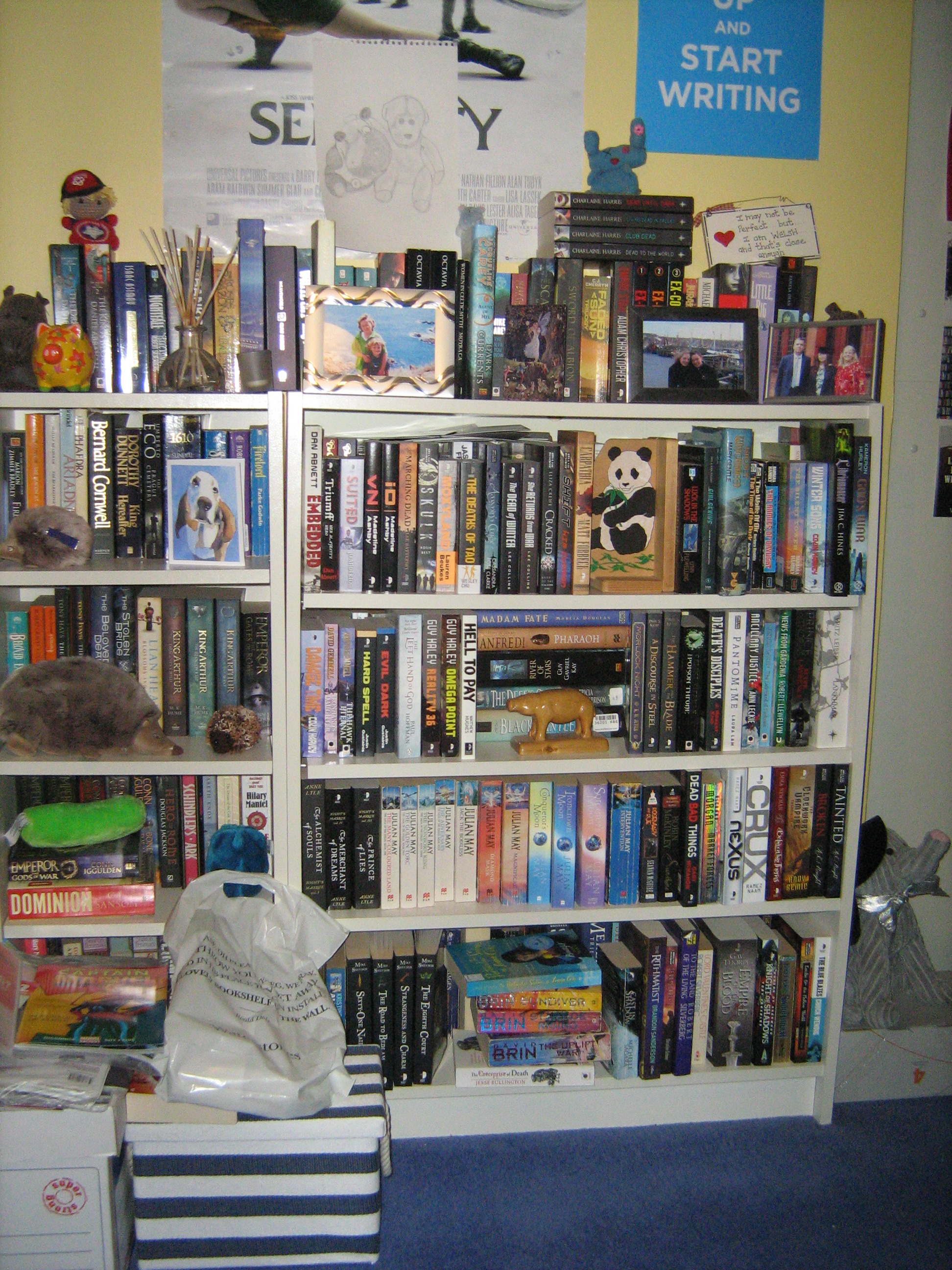For a while now, I’ve been meaning to make a post about my volunteering work for the RNIB. It’s not all relevant to this blog, but certain aspects of it are. I’ve been having a hard time phrasing it, though, and finally Lynn agreed to help by asking me questions as an interview. So thank you very, very much to Lynn for helping out.
Before we start, I just want to say that while I’m talking about being a volunteer for a couple of charities, I don’t officially represent them. And while I hope that I’ve been sensitive and thoughtful in my answers, I’m aware that there’s nothing wrong with my own sight a pair of glasses can’t fix, and that I may get things wrong or mess up in some way. Feel free to tell me if I do: I’ll be glad to add corrections to my post if necessary.
That said, here’s Lynn!
I know you volunteer for RNIB/Macular Society, but what is it that you do when you’re volunteering?
Well, my role in the Macular Society is really simple: I moderate the forums. I answer questions when I can, offer reassurance if I can, but mostly just make sure there’s no spam. Which is why I’m really glad I have a more active role for the RNIB (Royal National Institute for the Blind). It’s also affiliated with the local Institute for the Blind, and we have a really good network of support out there for people who are blind or partially sighted.
My particular role involves working in the clinic and trying to ensure everything works smoothly: I’m there to help both the patients and the nurses. So if someone’s lost, I tell them where to go; if someone’s just had their eyes dilated, so they can’t see to go get a coffee or get a taxi home, I’m trained to lead them safely and comfortably; if someone’s upset, I sit next to them and talk to them a bit; if someone needs to know how much longer it’s going to be, I go and find out. I also help with the general running of the clinic. If there’s work that you don’t need to be a healthcare professional for, I’ll do it: moving files, sorting files, taking requests to the photographers, running messages… It doesn’t sound like much, but when you know how big the clinics are and how many people we move through them each week, the five hours I volunteer a week is actually a significant help to the nurses.
Can you give any rough estimates on the numbers you alluded to?
I remember being told that in one of our treatment clinics, we move 800 people through each month. And we’re sometimes running seven clinics at a time, as well as the eye casualty. Diagnostic appointments usually take longer than the treatment clinics, so the numbers are probably lower for some of those, but it gives you an idea. The waiting room is often standing room only.
For more context, everyone who comes into the clinic has to first have their ‘visions’ done — a simple eye test to compare their current sight to when they had their last appointment. There is one visions room, divided into two parts, so only two nurses are ever doing visions at one time. Some clinics have a specific nurse assigned in one of the other rooms, if it’s a bit more complicated, but most people will go through the visions room.
That sounds like a lot of people! You must be really busy when you’re at the clinic.
Reaaaally busy. I don’t know what they do when they don’t have a volunteer there, because a lot of the stuff the nurses have to do then means they take even longer to get people through the visions room. Even with me there, we’re nearly always running with a delay.
Wow! I hope they always have at least one volunteer there then. How do the people visiting the clinic spend their time waiting for their appointments?
Some of them nap, which is an entirely valid response to the waiting times! Or glare at me, which is kind of unfair but also understandable. Mostly, though, and what I really wanted to talk about, people bring a book or a magazine, or buy the paper on the way in. That really surprised me, actually: I see a lot of the rest of the hospital, helping people around, and I don’t see as much reading in any other clinic or waiting area. You’d think a badly lit eye clinic full of partially sighted people would be the last place you’d see loads of people reading, but that’s my experience.
That does sound pretty incredible! And I mean that in the most positive sense of the word. Does that mean you sometimes end up talking about books and reading with the visitors too?
“What are you reading?” is the third most popular question (after “Where is the toilet?” and “Why is the clinic running late?”) I get asked. Not that I have chance to be actively reading when I’m on duty, but reading is an easy conversation topic to help distract people or just give them some interaction time with a friendly face. When people are worrying about the effects of losing their sight, too, the idea of not being able to read is what seems to really scare a lot of them. And quite often they know very little about the options out there to help them read for as long as possible.
Does the clinic offer them information on the options they have?
The clinic doesn’t, no. Not as such, anyway. My ‘boss’, the person who coordinates all of the volunteers, has an office in the clinic for that purpose. I was taught about the assistive devices we have, but mostly if someone asks for information, it’s easiest for me to go and find her. Then she’ll arrange to spend some time with them, talking about options like that and registering as legally blind, etc.
The one thing I do talk about when I can is ereaders. I’ve been investigating the various options for several years now, since my mother was diagnosed with macular degeneration, so generally I can help people figure out the best ereader for them, and recommend places to get books. Sometimes if it’s quiet I’ll fetch my own ereader and show them how it works.
So… there isn’t a lot of information to help ensure people are still able to read at the clinic other than in a specialised consultation? Is that why you mention ereaders specifically as something you talk to the visitors about?
There isn’t. I think that’s a problem that comes out of the NHS being very compartmentalised, which is a whole ‘nother rant — basically, instead of treating problems holistically, we treat problems separately. The clinic is there to deal with the physical issues; as far as I know, apart from the volunteers, I’ve never seen anything in place to help with the emotional side of going blind. With the clinic so busy, there isn’t time.
So it’s something I bring up when I can, something I know a lot about and can share that sometimes makes it all a bit easier to handle. I know for me, if I couldn’t read anymore, I’d be devastated. I’d probably end up on (more) antidepressants and just miserable. That’s why I also advocate for large print books in libraries (including the one I volunteer in), and for access to audiobooks and so on. Which is, you know, another reason to love the RNIB: they have a Talking Books subscription service with thousands of books available. (Which always needs help and donations, by the by.)
I see. That is… very sad. I’d be devastated too. Apart from ereaders and audiobooks, what other ways have you learned about that help people continue to be able to read?
Well, sometimes really good lighting is enough to help for some people, but then there’s also a variety of magnifiers. The one I find easiest to use myself (I have tried all of the ones we have available) is one of the variety of dome magnifiers we have. You just place them over the page and slide them along, and they magnify the text as well as concentrating the light on it. There’s CCTV video magnifiers, which take the text and magnify it up on an LCD screen, and have the advantage of being somewhat adjustable, but they cost a lot. I’m talking in the region of £800. For something that’s such a major concern for so many partially sighted people, the technology is difficult to access.
We do have programs that can give people these sorts of things free, but again, it takes resources, and it depends on where you live whether you can access one of those programs.
That sounds awful! I hope as technology increases, the costs will become less prohibitive to people. So ereaders and audiobooks are pretty much people’s best options?
To my mind, yes. An ereader is easily the cheapest option. It wasn’t cheap when I first started researching — I got mine for £180, and I think the Kindle was around that price too, then — but now things have caught up. The ereader I’d most readily recommend is the Kobo Mini: I got it when it was in a sale for £24, it’s pretty easy to use, and it’s lightweight, which is often another bonus for elderly people. The Kindle’s about the same weight and so on, but it doesn’t have the same range of fonts and font sizes. There’s a version of the Kobo with a backlight, too; that or the Kindle Paperwhite might be best for people who need bright light and good contrast.
I know you’ve already mentioned this, but just so we’re clear on this and have it reiterated: different people do have different requirements in ereaders? How do you know which ones work best for who?
It can be a problem, because obviously there’s lots and lots of people coming through the clinic from all sorts of backgrounds. Some of them might not be able to afford even a basic Kindle (~£60), or they might have trouble with coordination so a touch screen might not be a good idea. Generally, I just start by mentioning that I have a Kobo and find it useful, and let them ask me questions, which tends to give me a good idea of what they need. E.g. if they say they have trouble reading on a backlit screen, then obviously I scratch the idea of recommending the Kindle app on an iPad and go for something with e-ink technology.
I see… Do you think you could give people a few recommendations on ereaders to start with? Not too many details, perhaps, but some general pointers that you’ve found the most useful.
My first recommendation is generally to ignore me and get to a shop and try them out! In the UK, WHSmith will usually have display models of Kobos, while Waterstones has Kindles. Big supermarkets sometimes have them out, too. That way you can fiddle with the font options for yourself and just see what suits you.
Good idea! Though I know that I find it helpful to have some idea of what I should be looking for before I go into a shop myself. I feel very self-conscious if I have no idea what I want or need from a shop and I’m sure it’d be much worse if I had to deal with losing my sight as well. Having some idea of what kind of ereader I should be looking for would really help me look for one.
For that, I’d probably end up suggesting chatting to other people with similar issues, e.g. on the Macular Society forums. But in the meantime I’d go through a sort of checklist: what sort of screen do you want/need? Do you want it to do other things as well (i.e. a tablet)? Write down the things you know you can’t do without (like a lightweight unit, large buttons, lighting options, fonts), and that’d give you some idea of what to ask the shop assistants. There’s usually a particular shop assistant who handles ereaders, in my experience, so ask about that and ask to speak to them if possible.
I am actually planning to do a post here sometime soon about the pros and cons of various ereaders, and if anyone has any specific questions, feel free to ask me. If I don’t already know, I may be able to find out.
That doesn’t leave me with many questions to ask, beyond thanking you for your time and wishing you loads of good experiences volunteering!
You’re the one who helped me out! Thank you for your time, Lynn.
As I said, if anyone has any other questions, feel free to ask them in the comments — if there’s anything interesting, I may add it to the post, and likewise I’ll add any corrections that may be necessary.

